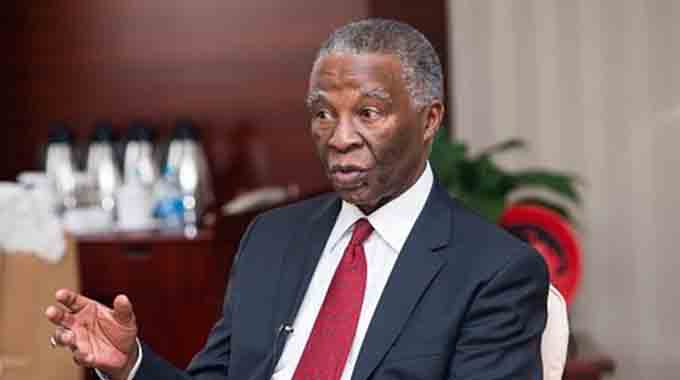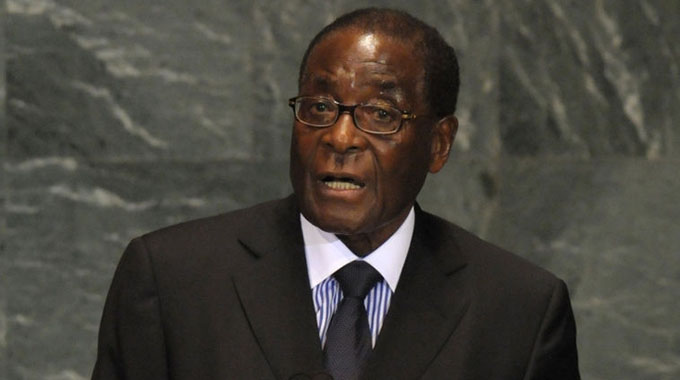‘Zim delayed land reform for SA’

Bulawayo Bureau
FORMER South African President Thabo Mbeki has said former President Robert Mugabe delayed embarking on the land reform programme to allow successful negotiations between the African National Congress (ANC) and the apartheid regime.
He said this at Durban City Hall on Tuesday during an ANC memorial service for Cde Mugabe in KwaZulu-Natal.
“As we began the process of negotiations here in South Africa in 1990, the 10-year period of the Constitution of Zimbabwe negotiated at the Lancaster House came to an end,” said Cde Mbeki.
“Zimbabwe could now redo its Constitution, including addressing this matter of the land question, particularly as it related to the principle of willing buyer-willing seller.
“The then secretary-general of the Commonwealth, Chief Emeka Anyaoku from Nigeria, then approached President Mugabe to plead with him not to change the Lancaster House provisions related to the land question.
“His (Chief Anyaoku) argument was that if Zimbabwe did something like that to address the land issue, correctly as they needed to address it, it would frighten the white population in South Africa and make it difficult for ANC to negotiate with them.”
Cde Mbeki said Cde Mugabe then acceded to Chief Anyaoku’s plea.
“That is why the land reform process was delayed in Zimbabwe for at least a decade,” he said.
“It was done in order to give us a space here in order to succeed in our negotiations with the apartheid regime.”
Cde Mbeki said he went to the UK and spoke to Prime Minister Tony Blair and urged the British government to honour its Lancaster House agreement.
“As South African government we told Prime Minister Blair that we think you must honour your promise on the land question . . . that particular year UK, Canada and Australia and New Zealand, the so called white Commonwealth, all of them for some reasons had budget surpluses and so we said to him (Prime Minister Blair) that if he committed himself to raising the money, we will talk to other Commonwealth countries to support him and he agreed,” he said.
“A donor conference was held in Zimbabwe in 1998 to address this matter and it was agreed, but dishonoured in the first instance by the UK.
“The matter came up again a bit later when the war veterans started occupying some of the farms and at that particular time there were 115 farms that were available for sale and they would have cost 9 million.
“Zimbabwe sent a delegation to the UK to ask that they be given the money to buy those farms to take the war veterans onto these farms that would have owned away from these commercial ones and the British government said they had no money.”







Comments